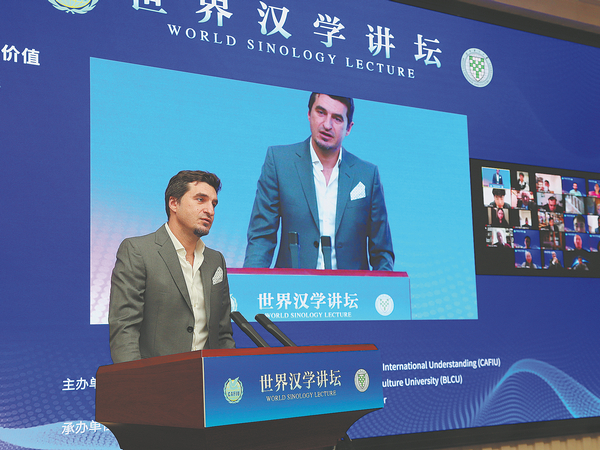

He said that development is based on diversity with inclusiveness, rather than a compromise or an average drawn upon individuals, and he hopes the West will learn more about Chinese culture and history.
Fred Engst, a professor at the University of International Business and Economics in Beijing, who is an American born and raised in China, recalled his early life in the country and pointed out that development with independence and autonomy is a key impetus for China's rise and its opening-up.
Karim Alwadi, Syrian entrepreneur and a member of the Aspen Global Leadership Network, based in Washington, D.C., offered suggestions for the strengthening of Sino-Arab cooperation, including building more communication mechanisms for high-ranking officials and direct contact of top entrepreneurs from the two sides. He also pointed out China's potential in areas like supply chains and financing in the Arab world.
Rashad Karimov, chief adviser to the director-general of the Port of Baku, Azerbaijan, said that, while the ancient Silk Road used to link the two distant countries closely, the current Belt and Road Initiative has ushered in new opportunities in trade, transportation, logistics, communication, investment, cultural exchanges, and many other sectors, for the countries and regions involved.
According to Karimov, many Chinese products, such as mobile phones, are popular with the people of Azerbaijan and, with their high quality, trendy looks and fair price, have become an essential part of people's daily lives.